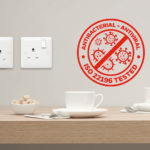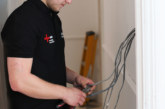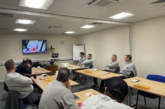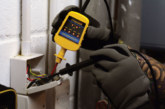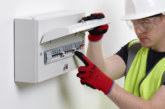Amy Burley, Offering Manager at MK Electric, looks at how social housing providers can work within available budgets to deliver electrical installations that exceed expectations, without having to compromise on safety, quality or aesthetic.
Technology adoption has grown exponentially in recent years, resulting in a greater demand for power and charging. It’s clear that in the future the upgrading of homes and buildings will require more socket installations and new styles of sockets to accommodate our modern power requirements.
With more and more of our devices requiring USB charging, installing sockets with integrated USB ports is recommended. Upgraded sockets ensure that the charging requirements of a property are fulfilled well into the future, potentially making more socket outlets available to users within a property and mitigating the need to install additional socket outlets.
For specifiers looking for more flexibility in the wiring devices they choose for projects, sockets with USB-C integration are well worth considering. Providing a direct USB-C connection through the socket outlet ensures longevity and is a safer way of charging.
Features such as a 3-Pin operated ‘Child Resistant Shutter System’, double pole switching, and total charging current and voltage outage safety modes, are also worth looking out for to deliver enhanced safety to both the user and the USB socket.
USB-C Integrated Sockets are currently available through MK’s Logic Plus range. They use Dynamic Device Recognition (DDR) technology, to draw the electrical current in a way that best suits the individual requirements of a particular device, providing optimal charging and enhanced user protection.
Value without compromise
The publication of the Building Safety Bill in June 2021 rightly made the safety of residents more of a focus than ever before. This increases the importance placed on social housing providers and developers to use products that meet required quality and safety standards.
Whilst deploying the safest and most reliable technology is the priority, it remains likely in the social housing sector that budgets may be limited. In terms of wiring devices, choosing a value range from an established manufacturer is therefore a worthwhile consideration to help meet budgets whilst still providing assurances on safety and product quality to decision makers.
As a specifier, making sure you deploy a range of wiring devices that suit the user requirements is important, but ensuring products have been thoroughly tested is also crucial. The MK Base broad and practical range of white moulded wiring devices, for example, have undergone 100% electrical and visual testing at the point of manufacture and are backed by a 20-year guarantee (excluding electronic products).

Healthier power
With our awareness of touchpoints and how germs can easily be spread increasing, upgrading homes and communal areas to create healthier spaces has come into sharper focus. Sockets and switches are frequently touched, so it’s important to look out for products that are made from a high-grade, anti-bacterial material.
Sockets that have been tested thoroughly will be key to keeping the spread of infection at bay in the future. Specifiers should look out for products that have been independently tested to the latest industry standard. In addition, the Phi-X174 virus is an internationally recognised standard in anti-viral testing and one of the smallest known non-enveloped viruses, making it harder to detect and destroy. Products with high Phi-X174 kill rates therefore offer the highest levels of anti-viral protection.
For example, the MK Logic Plus range of sockets is made using urea formaldehyde, a high-grade thermoset material with anti-bacterial and anti-viral properties inherent in the compound of the product. It has been tested over a 24-hour period in line with ISO 22196:2011 and is designed to kill bacteria and viruses and not just inhibit their growth. The range has a kill rate of over 99.99% on the Phi-X174 virus, MRSA, E. Coli, Salmonella, Klebsiella Pneumoniae, Listeria, as well as S.Aureus 6538p, which can be resistant to antibiotics. Whilst the MK Base range has a kill rate of 99.9% on the Phi-X174 virus and over 99% for MRSA, E. Coli, Salmonella, Klebsiella Pneumoniae, Listeria and S.Aureus 6538p.

